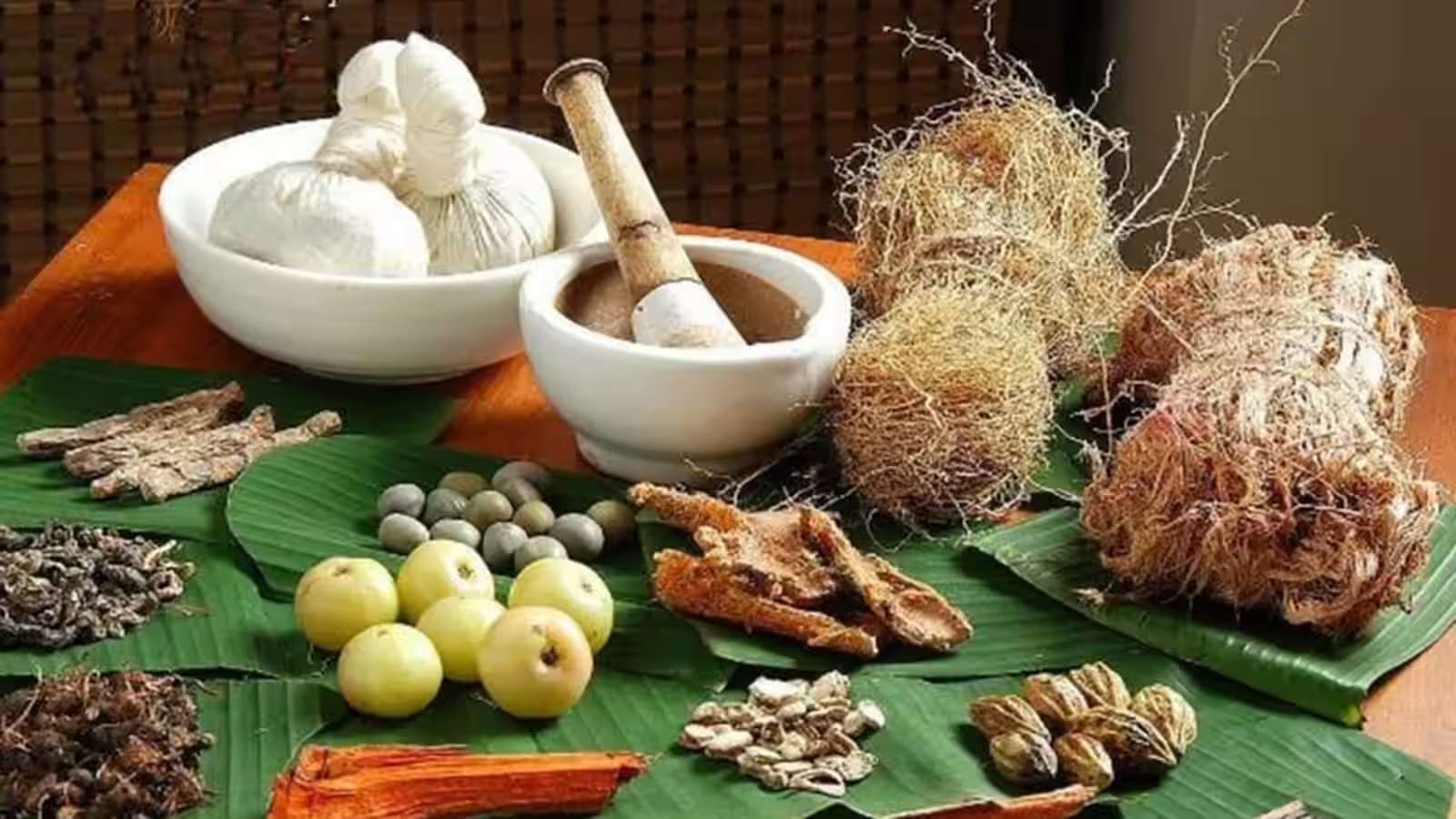5 extraordinary herbal treatments to enhance kidney health

- Krystal Johns
- 14 Mar, 2023
The kidneys are vital organs that play a crucial role in maintaining overall health. They filter waste products and toxins from the blood, regulate fluid balance and blood pressure, and produce hormones that help control red blood cell production and bone health.
Unfortunately, many factors can damage the kidneys and impair their function, including poor diet, dehydration, chronic disease, and certain medications. While modern medicine offers treatments such as dialysis and kidney transplants for kidney disease, natural remedies can also be effective in supporting kidney health and preventing further damage.
Herbs have been used for centuries for their medicinal properties, and several herbs have been shown to benefit the kidneys. Here are five incredible herbs remedies to improve kidney health.
Dandelion Root
Dandelion (Taraxacum officinale) is a common weed that is often overlooked but has potent medicinal properties. The root of the plant has been used in traditional medicine to support liver and kidney function, and recent studies have confirmed its effectiveness.
Dandelion root is a natural diuretic, meaning it can increase urine production and help flush toxins and waste products out of the body. This property can be especially beneficial for people with kidney disease, as it can help reduce the burden on the kidneys and prevent the buildup of harmful substances in the blood.
Dandelion root also contains potent antioxidants, such as flavonoids and phenolic acids, which help protect the kidneys from oxidative stress and inflammation. In a study published in the Journal of Food and Drug Analysis, researchers found that dandelion root extract significantly reduced inflammation and oxidative stress in rats with kidney damage.
Additionally, dandelion root has been shown to improve liver function, which can indirectly benefit the kidneys. A healthy liver helps filter toxins and waste products out of the blood before they reach the kidneys, reducing their workload and preventing damage.
To incorporate dandelion root into your diet, you can brew a tea by steeping the dried root in hot water for several minutes. You can also find dandelion root supplements in capsule or tincture form.
Ginger
Ginger (Zingiber officinale) is a spicy root that is commonly used in cooking and traditional medicine. It has potent anti-inflammatory and antioxidant properties, making it a popular natural remedy for a variety of conditions, including kidney disease.
Inflammation is a major contributor to kidney damage and disease progression, and ginger has been shown to reduce inflammation in the body. In a study published in the Journal of Renal Nutrition, researchers found that ginger extract reduced kidney inflammation and damage in rats with kidney disease.
Ginger also has diuretic properties, meaning it can increase urine production and help flush out toxins and waste products from the body. This property can be beneficial for people with kidney disease, as it can help reduce the workload on the kidneys and prevent further damage.
Furthermore, ginger has been shown to improve blood circulation, which can benefit kidney function. The kidneys rely on a steady blood supply to filter waste products and toxins from the blood, and improved circulation can help optimize this process.
To incorporate ginger into your diet, you can grate fresh ginger root and add it to teas, soups, and stir-fries. You can also find ginger supplements in capsule or tincture form.
Nettle Leaf
Nettle (Urtica dioica) is a plant with a long history of use in traditional medicine for its medicinal properties. Its leaves and roots contain compounds that have diuretic, anti-inflammatory, and antioxidant properties, making it a potent natural remedy for kidney health.
Nettle leaf is a natural diuretic, meaning it can increase urine production and help flush out toxins and waste products from the body. This property can be beneficial for people with kidney disease, as it can help reduce the burden on the kidneys and prevent the buildup of harmful substances in the blood.
Nettle leaf also contains compounds that have anti-inflammatory properties, such as flavonoids and carotenoids. Inflammation is a major contributor to kidney damage and disease progression, and reducing inflammation in the body can help protect the kidneys.
In a study published in the Journal of Herbal Medicine, researchers found that nettle leaf extract reduced inflammation and oxidative stress in rats with kidney damage. The study also found that nettle leaf extract improved kidney function and reduced proteinuria, a condition where protein leaks into the urine.
Furthermore, nettle leaf contains compounds that have antioxidant properties, such as vitamin C and beta-carotene. These compounds help protect the kidneys from oxidative stress, which can cause damage to cells and tissues.
To incorporate nettle leaf into your diet, you can brew a tea by steeping the dried leaves in hot water for several minutes. You can also find nettle leaf supplements in capsule or tincture form.
Turmeric
Turmeric (Curcuma longa) is a spice commonly used in Indian and Southeast Asian cuisine. It contains a compound called curcumin, which has potent anti-inflammatory and antioxidant properties.
Inflammation is a major contributor to kidney damage and disease progression, and turmeric has been shown to reduce inflammation in the body. In a study published in the journal Renal Failure, researchers found that curcumin reduced kidney inflammation and damage in rats with kidney disease.
Turmeric also has antioxidant properties, meaning it can help protect the kidneys from oxidative stress. In a study published in the International Journal of Nephrology and Renovascular Disease, researchers found that curcumin reduced oxidative stress and inflammation in patients with chronic kidney disease.
Additionally, turmeric has been shown to improve blood vessel function, which can benefit kidney function. The kidneys rely on a healthy blood supply to filter waste products and toxins from the blood, and improving blood vessel function can help optimize this process.
To incorporate turmeric into your diet, you can add it to curries, soups, and stews. You can also find turmeric supplements in capsule or tincture form.
Marshmallow Root
Marshmallow (Althaea officinalis) is a plant that has been used for centuries in traditional medicine for its medicinal properties. Its roots contain compounds that have diuretic, anti-inflammatory, and antioxidant properties, making it a potent natural remedy for kidney health.
Marshmallow root is a natural diuretic, meaning it can increase urine production and help flush out toxins and waste products from the body. This property can be beneficial for people with kidney disease, as it can help reduce the burden on the kidneys and prevent the buildup of harmful substances in the blood.
Marshmallow root also contains compounds that have anti-inflammatory properties, such as flavonoids and phenolic acids. Inflammation is a major contributor to kidney damage and disease progression, and reducing inflammation in the body can help protect the kidneys.
Furthermore, marshmallow root has been shown to have a protective effect on the kidneys. In a study published in the Journal of Renal Injury Prevention, researchers found that marshmallow root extract reduced kidney damage and inflammation in rats with kidney disease.
To incorporate marshmallow root into your diet, you can brew a tea by steeping the dried root in hot water for several minutes. You can also find marshmallow root supplements in capsule or tincture form.
In conclusion, natural remedies can be effective in supporting kidney health and preventing further damage. The herbs mentioned above have potent medicinal properties that can benefit the kidneys in various ways, such as reducing inflammation, increasing urine production, and protecting against oxidative stress.
However, it's important to note that herbal remedies should be used in conjunction with medical treatments and under the guidance of a healthcare professional. Some herbs can interact with medications or cause side effects, and it's important to be aware of these potential risks.
In addition to using herbs, there are also lifestyle changes that can help support kidney health, such as maintaining a healthy weight, staying hydrated, and avoiding smoking and excessive alcohol consumption.
If you have kidney disease or are at risk for kidney problems, it's important to work with your healthcare provider to develop a comprehensive treatment plan that incorporates both conventional and natural therapies.
Overall, incorporating herbs and natural remedies into your routine can be a safe and effective way to support kidney health and prevent further damage. By making simple changes to your diet and lifestyle, you can help protect your kidneys and maintain optimal health.
Leave a Reply
Your email address will not be published. Required fields are marked *
GRLpGpAG
1
GRLpGpAG
1
GRLpGpAG
1
GRLpGpAG
1'"
GRLpGpAG
\
GRLpGpAG
@@8xXws
GRLpGpAG
1
GRLpGpAG
JyI=
GRLpGpAG
1
GRLpGpAG
flNc1jBm











